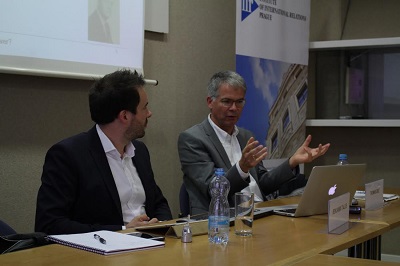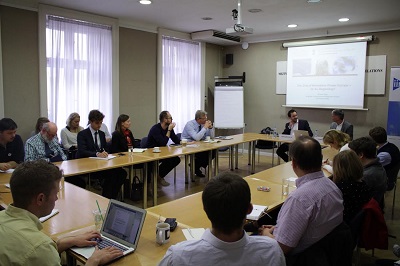The End of Normative Power Europe?
The Eurozone, Greece, Migration, Brexit. As the EU moves from crisis to crisis many people are asking what Europe has to offer its own citizens as well as the wider world? Is the EU’s attractive power exhausted? Does the EU still have any ‘weapons of mass attraction’? Can the Union still play a transformative role in its neighbourhood? Will the EU stay together?
10. 10. 2016 (16:00)
This content is not up to date Institute of International Relations Prague, Nerudova 3
In this seminar, renowned European IR scholar Thomas Diez examines the commonplace notion of ‘Normative power Europe’ to shed light on these issues and prompt discussion about the EU’s present as well as its future. A vital topic for our times.
Paper Abstract:
How can we account for the demise of “Normative Power Europe” and the crisis of EU foreign policy? While not discounting alternative explanations, in this paper I suggest that we need to place the debate about Normative Power Europe in the context of the structure and transformation of international society. In this context, the project of integration aimed at revolutionising the society of states by overcoming the territorial boundaries of politics. Yet turning to scholars such as Hedley Bull and David Mitrany alerts us to the internal contradictions and external resistances to such a project, which have become more prominent with the EU’s increase in size and ambition. Taking these objections seriously does not mean to accept the inevitability of the end of normative power. Instead, I suggest that taking Normative Power Europe seriously implies a normativity that exceeds the constraints of the present, and is thus a kind of political theology. It thus challenges EU politicians and citizens alike to take up the objections raised by Bull and Mitrany and transform the EU and its policies to bring them back in line with the principles of normative power.
Thomas Diez is Professor of Political Science and International Relations at the University of Tübingen and President of the European International Studies Association (EISA) 2015-2017. From 1997 to 2000, he was Research Fellow at the Copenhagen Peace Research Institute and subsequently taught at the University of Birmingham. Among his publications are The EU, Promoting Regional Integration, and Conflict Resolution (co-editor, Palgrave, 2017), The Securitisation of Climate Change (co-author, Routledge, 2016), A Different Kind of Power? (editor, CEU Press 2015), European Integration Theory (co-editor, Oxford UP 2009), as well as numerous other books and articles. In September 2009, he received the Anna Lindh Award for his contribution to the field of European Foreign and Security Policy Studies.

